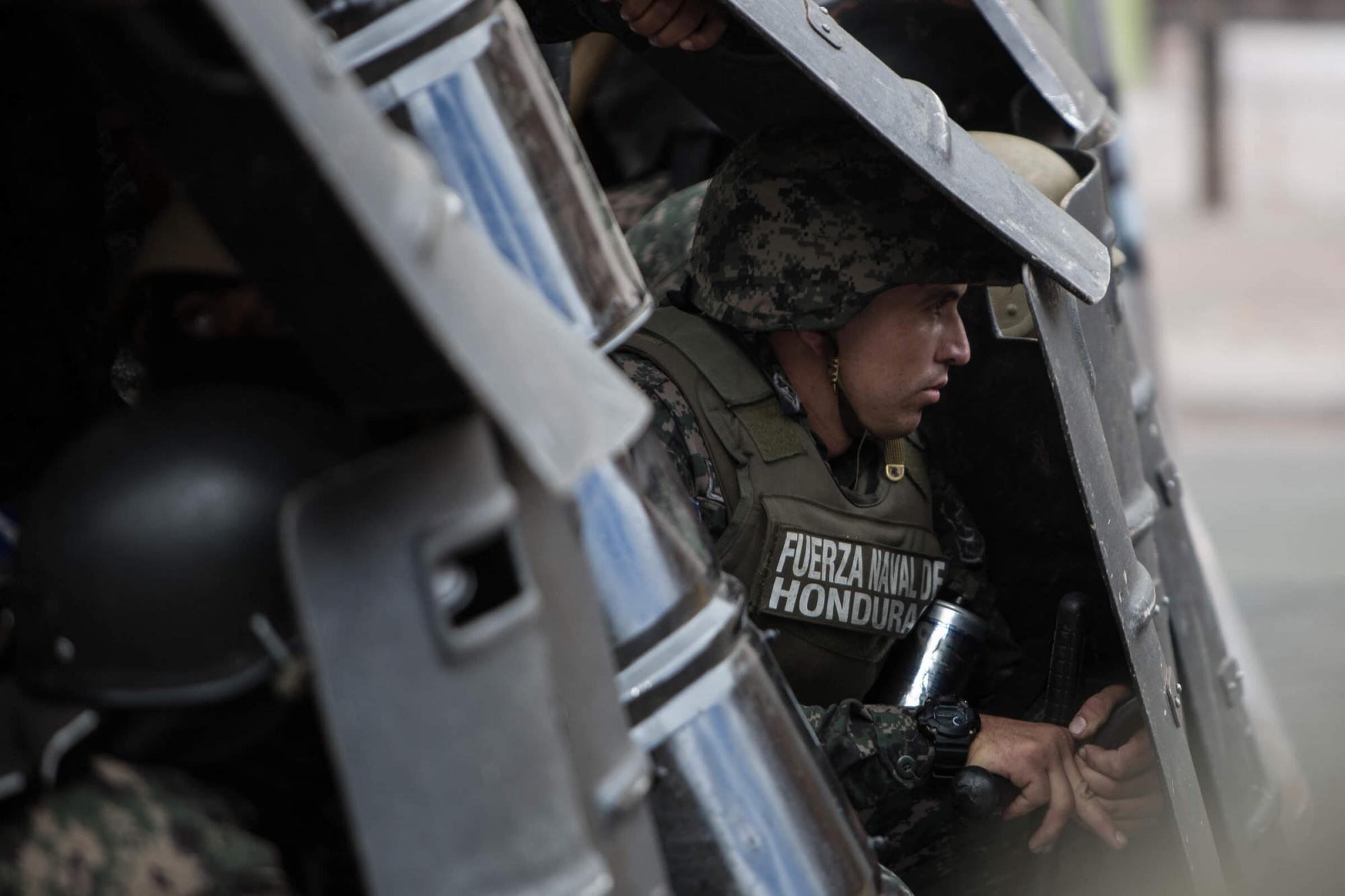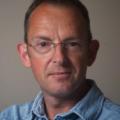'We stand on the front line, between the protesters and the military. We take photographs of what happens. We see how people are beaten, and taken. And we know that when people are taken, they are often not taken to a police station, but somewhere else where they are beaten, often to try to get information from them, and then later, and hour or two later, they are taken to a police station. Some arrived injured, their heads or hands broken, with burns. We try to take photographs as people are being arrested, and also as they arrive at police stations, to compare the condition they leave and arrive in. The soldiers cover their identity, they all wear ski masks, but the vehicles they use can often be identified."

Members of the Honduran Navy wait in formation with shields as they prepare to charge a barricade of protestors in El Guanacaste, Tegucigalpa.
Human Rights Groups Observe Violent Honduras Election Protests
Human Rights Groups Observe Violent Honduras Election Protests
Photo Gallery
Read the Full Article

Already a subscriber? Login
Got something to say about what you're reading? We value your feedback!


